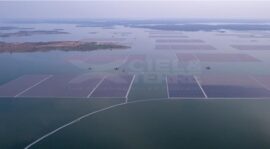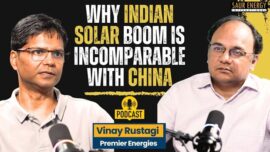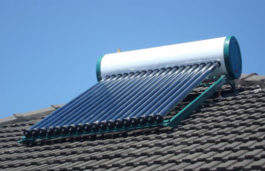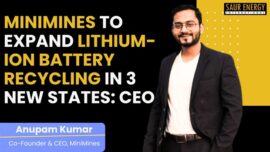Highlights :
- To be set up in Tamil Nadu, the new facility will involve an investment of $684 million and create 1000 jobs.
- If the project goes through, it will be one of the biggest success stories of the government’s efforts to attract foreign manufacturers to India.
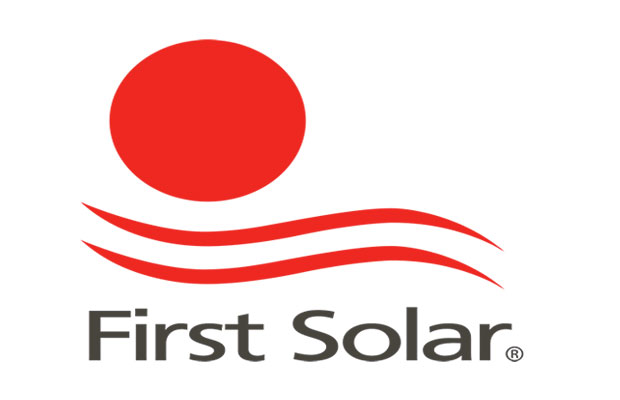
First Solar, Inc. (Nasdaq: FSLR) today announced that it intends to invest $684 million in a new, fully vertically-integrated photovoltaic (PV) thin film solar module manufacturing facility in India. Contingent upon permitting, and pending approval of Indian government incentives that are satisfactory to First Solar, the advanced facility is expected to commence operations in the second half of 2023.
“India is an attractive market for First Solar, and not simply because our module technology is advantaged in its hot, humid climate. It is an inherently sustainable market, underpinned by a growing economy and appetite for energy, with a well-defined goal that will need over 25 GW of solar to be deployed every year for the next nine years,” said Mark Widmar, chief executive officer, First Solar. “Crucially, it has combined its clean energy targets with effective trade and industrial policy designed to enable self-sufficient domestic manufacturing and true energy security. We also have many longstanding customers in the country that will be pleased to have access to an advanced PV module, which is made in India, for India.”
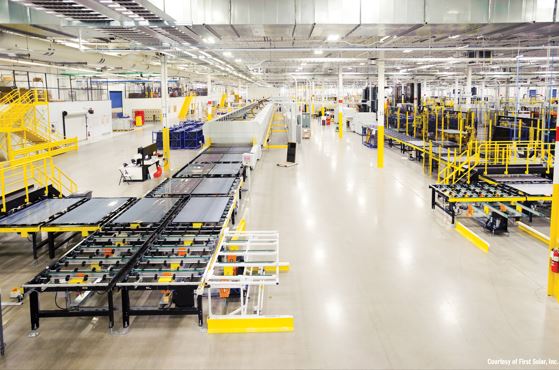
First Solar Manufacturing Plant in US
The planned facility is projected to have a nameplate capacity of 3.3 gigawatts (GW)DC. Unique among the world’s ten largest solar manufacturers for being the only US-headquartered company, for not using a crystalline silicon (c-Si) semiconductor, and for not manufacturing in China, First Solar produces its thin film PV modules using a fully integrated, continuous process under one roof and does not rely on Chinese c-Si supply chains. The firm has also recently announced plans to expand manufacturing in the US too by a similar size..
Widmar added, “India stands apart in the decisiveness of its response to China’s strategy of state-subsidized global dominance of the crystalline silicon solar supply chain. The country’s comprehensive approach provides precisely the kind of level playing field needed for non-Chinese solar manufacturers to compete on their own merits, and should be a template for other likeminded nations. We’re very pleased to be able to support the sustainable energy ambitions of a major US ally in the Indo-Pacific region with American-designed solar technology.”
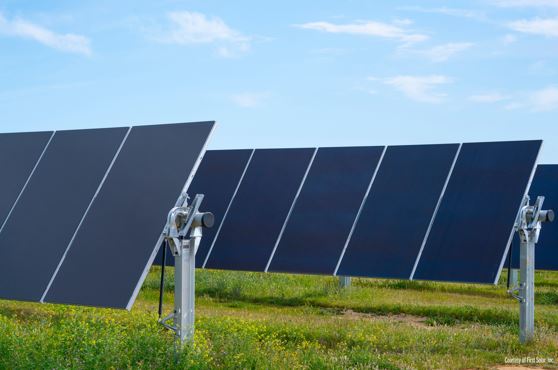
First Solar Series 6 Modules
The facility is expected to be located in Tamil Nadu and is projected to create over 1,000 new jobs in the state. It will be designed using the advanced manufacturing template established for First Solar’s recently-announced factory in Ohio, and will combine highly skilled workers with Industry 4.0 architecture, machine-to-machine communication, artificial intelligence, and Internet of Things connectivity.
Additionally, the proposed facility will follow First Solar’s stated Responsible Solar principles across sourcing, manufacturing, and lifecycle management, and is expected to feature an integrated, high-value recycling facility that will be able to recover over 90% of materials from processed modules for reuse. The company’s resource-efficient manufacturing process allows it to produce solar modules with a carbon footprint that is 2.5-times lower, a water footprint that is three times lower, and an energy payback time that is twice as fast as c-Si panels made in China.
Designed and developed at its research and development (R&D) centers in the United States, First Solar’s advanced thin film PV modules set industry benchmarks for quality, durability, reliability, design, and environmental performance. Each module features a layer of Cadmium Tellurium (CadTel) semiconductor that is only three percent the thickness of a human hair and the company continues to optimize the amount of semiconductor material used by enhancing its vapor deposition process.
The announcement is a big win for Tamil Nadu, where Vikram Solar inaugurated its new manufacturing facilities last week. Along with Gujarat, the state is emerging as a key manufacturing hub for solar now.







